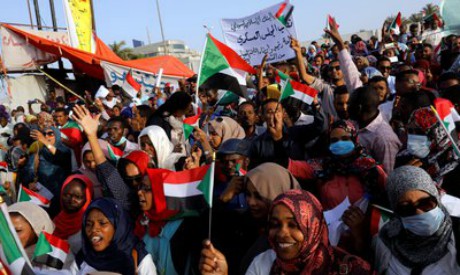
“Freedom, Peace and Revolution is the People’s Choice.” This is the phrase that has become the morning greeting of the Sudanese people.
Without stop for the past five months, millions of people across the country have mounted demonstrations in opposition to the government of Omar Al Bashir who was forced out of office on April 11.
Last October protests broke out over an austerity program imposed by Bashir which slashed government services and cut basic subsidies on commodities such as bread.
The demonstrators include many young people, among whom nearly 30 percent suffer from unemployment.
Women have also played a leading role in the mass uprising. Apart from the extreme economic hardships that have been born by the working masses of Sudan, women are doubly oppressed by public order laws which limit women’s access to travel, education, and association. Many have also protested the sexual violence that the Sudanese state upholds (marital rape is legal in Sudan).
Attempting a “palace coup”, a military junta has assumed the place of the ruling government, but the demonstrators have pressed on, demanding a full transfer of power to the civilian representatives of the Forces for Freedom and Change, a mass coalition which has been at the forefront of the protests. They are calling for continued mass action, demand the removal of all of Bashir’s associates and deputies, the freeing of political prisoners, and the lifting of the national state of emergency.
